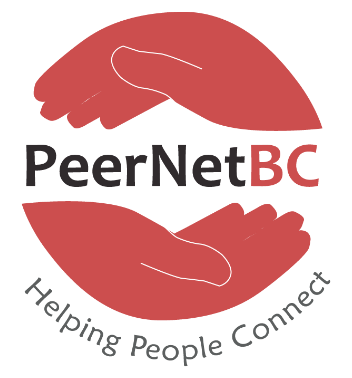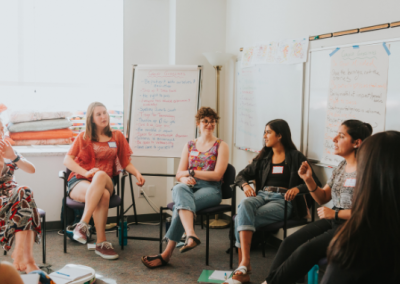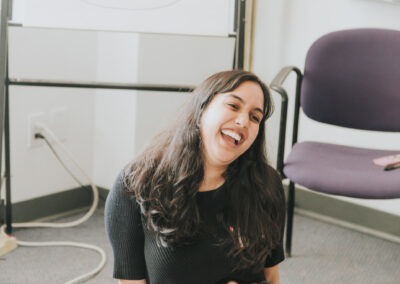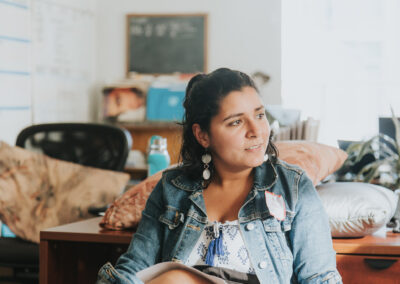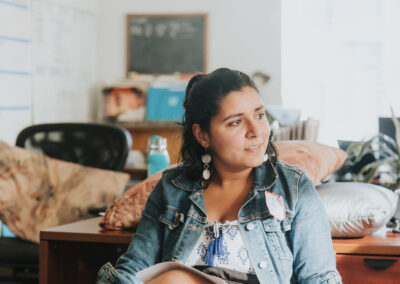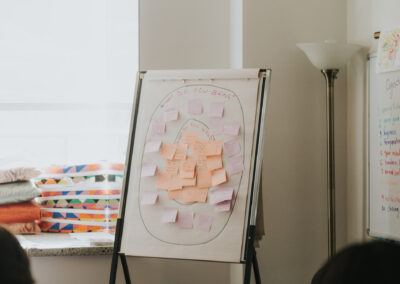What is The Youth Facilitators Network?
The Youth Facilitators Network (YFN) is a new initiative at PeerNetBC which aims to develop a strong relationship with our youth communities by providing mentorship and collaborative learning so youth can become contract facilitators who deliver PNBC youth workshops.
Rooted in the principle that young people are already doing incredible facilitation work in their own capacity and should be paid for their work, the YFN provides opportunities for youth to build on their experience within the context of the PeerNetBC curriculum. The peer-based approach reflected in the design and delivery of the PNBC youth workshops centres the lived experiences of young people while fostering a culture of community engagement.
The Youth Facilitators Network’s three-phase pilot aimed to provide a continuum of support for each youth facilitator.
The Pilot
Phase I:
- Building relationships between youth facilitators and PeerNetBC
- Training sessions focused on existing workshop curriculum as well as PeerNetBC ‘workshop lifecycle’ and processes, including communications, planning, and delivery
- Gaining ‘field experience’ by participating in the PNBC Youth Summer Standard Series
Phase II:
- Learning about the workshop building process based on custom workshop requests
- Attending custom workshops and supporting the lead facilitator
- Debriefing workshops during monthly YFN check-ins
Phase III:
- Receiving training from other community facilitators on topics that reflect YFN members’ interests and relate to PNBC curriculum
- Building workshop agendas and delivering workshop activities with support from the lead facilitator
- Leading and planning the creation of curriculum for the delivery of the Youth Spring Standard Series
The youth facilitators are also developing PeerNetBC’s first youth facilitator guide, which will be an excellent resource for folx in our community. The guide builds off of current practices and curriculum and is further informed by the interests and lived experiences of the YFN members.
The 2019/20 Youth Facilitator Network:
Annie
Annie is a graduate of Simon Fraser University’s (SFU) English department, who spent her time on campus working as an activist with many social justice causes. She has since continued her social justice work with organizations like BC Civil Liberties Association and PeerNetBC, where she currently works as a facilitator for the Youth Facilitation Network. She lives and works across the stolen territories of the Coast Salish nations and peoples.
Anita
A childhood immigrant to Turtle Island, Anita (沈霁) is proudly queer, Chinese, and a youth from government care. They are passionate about conquering their fears and learning through play. Here are some of the fears they’ve faced: heights, public speaking, petting a bird (aka tiny dinosaur), and seeing an octopus in the ocean. They began their facilitation journey with PeerNetBC in 2017, fell in love with facilitation, and now facilitates with Check Your Head, Fostering Change, and the Crisis Centre.
Ry
Pronouns: They/Them/Their Living on the unceded Coast Salish territories of the Sḵwxwú7mesh, and səlilwətaɁɬ nations (aka: “North Vancouver”)
After starting out as a shy, reclusive person who drew and wrote things once in a while, Ry was looped into PeerNetBC’s “Blast from the Radical Past” social justice bus tour back in 2015 in order to build up their confidence and get a feel for what it’s like to be a facilitator. Not only did they succeed, they still haven’t left.
Ry now wears many hats and strives to support young folx in navigating the world we live in.
A Call to Action for the Future
PeerNetBC envisions communities connected in ways that foster meaningful collaboration and engagement. We hope that the Youth Facilitator Network can expand our capacity in delivering more workshops across as well as outside the Lower Mainland. As the project evolves in response to feedback and shifting needs of our facilitators and communities, we look forward to finding the best ways to continue supporting the work of young people. Our hope is that a collective effort will drive this work through collaboration with partners who share these values and seek to build on capacity-building practices.
